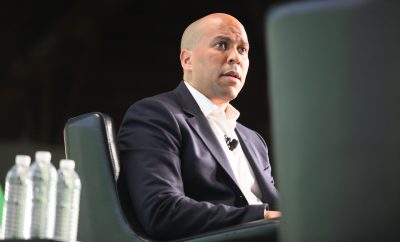
Image Courtesy of reynermedia; License: (CC BY 2.0)
Cannabis in America
Cash Only: Why are Banks Hesitant to Work with Legal Pot Businesses?
Nine states will be voting on marijuana legalization measures in some form next week–either recreational or medical–in what some pot advocates see as a tipping point in the federal classification of the drug. One key facet of state-level legalization that is seriously affected by the federal ban on marijuana is the banking sector. Because cannabis is illegal at the federal level, banks are hesitant to work with dispensaries, even in states where marijuana is entirely legal.
The U.S. Justice Department issued a new set of guidelines for banks in dealing with legal dispensaries in February 2014, saying banks and credit unions doing business with state-licensed businesses (in states where marijuana is legal, of course), would not be prosecuted, irrespective of the federal standing. Since the new practices were instituted, banks and unions working with marijuana businesses jumped from 51 to 301, as of April 2016.
But banks still hesitate to open accounts or issue credit for legal pot businesses, leaving many to operate in cash only. That can lead to some obvious obstacles. For instance, there have been 200 recorded robberies at marijuana dispensaries in Denver since Colorado fully implemented its marijuana legalization measure in 2014. New businesses looking to cut into the legal market struggle to find banks willing to lend them money. And some pot proprietors resort to filing their credit card charges under false pretenses, such as “spa service.”
Twenty-five states (and the District of Columbia) have legalized marijuana in some form: medically, recreationally, or both. Five states, including California, a state with an already huge medical pot market, will be voting on recreational weed ballot measures on Election Day.
One California union, the Community Credit Union of Southern Humboldt, stopped issuing accounts to pot-related businesses because of the uncertainty, and the responsibility of having to ensure a marijuana client is legal and following all regulations and protocols. “We’re not being asked to go over to the gun dealer and ask them if they’re making appropriate background checks,” she told Reuters.
One credit union in Colorado, Partner Colorado Credit Union, is a model for banks who are willing to risk breaking federal law while adhering to state laws. For one, the union takes up to three weeks to vet any potential clients. Once a working relationship is established, the union uses armored trucks to transport cash from the dispensary to the Denver branch of the Federal Reserve Bank. “Our program is designed with eyes on the business, eyes on the owner, eyes on the money,” the union’s Chief Executive Sundie Seefried told Reuters.
Such scrupulous steps would hardly be necessary if federal and state governments could get on the same page on this issue. Next week’s results could lead to a step in that direction.








Comments